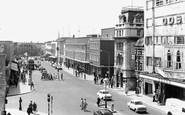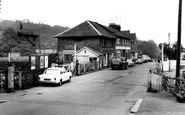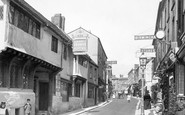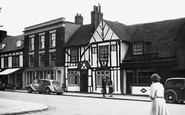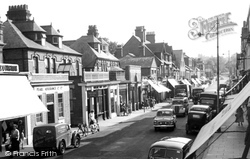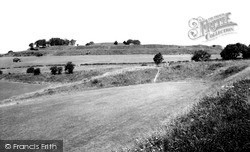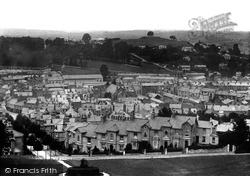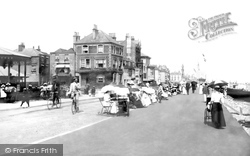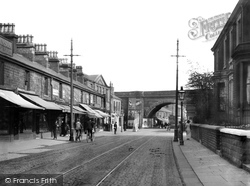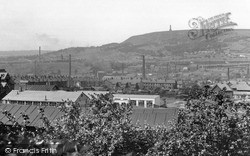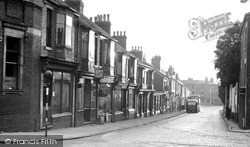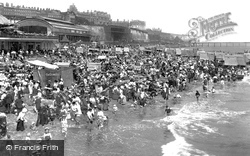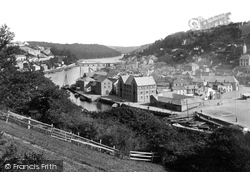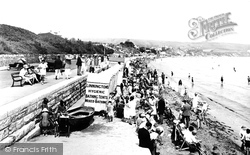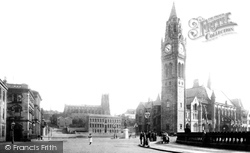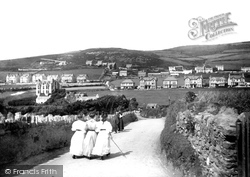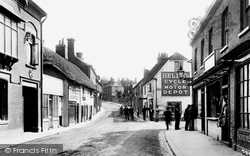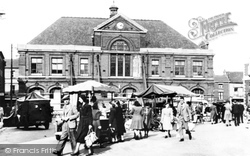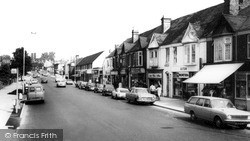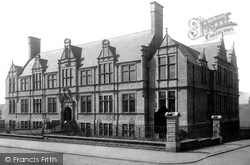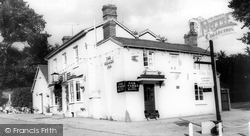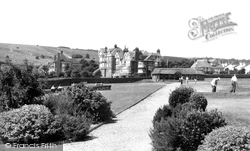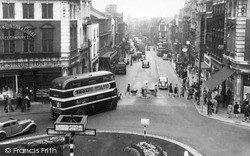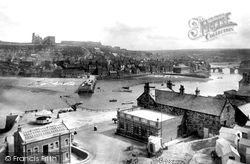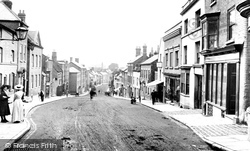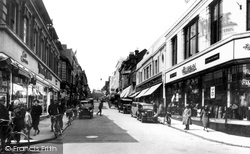Places
26 places found.
Those places high-lighted have photos. All locations may have maps, books and memories.
- Town End, Derbyshire
- Town End, Buckinghamshire
- Town's End, Somerset
- Towns End, Dorset
- Town End, Merseyside
- Town End, Cambridgeshire
- Town's End, Buckinghamshire
- West End Town, Northumberland
- Bolton Town End, Lancashire
- Kearby Town End, Yorkshire
- Town End, Cumbria (near Grange-Over-Sands)
- Town End, Cumbria (near Bowness-On-Windermere)
- Town End, Yorkshire (near Huddersfield)
- Town End, Yorkshire (near Wilberfoss)
- Town End, Cumbria (near Appleby-in-Westmorland)
- Town's End, Dorset (near Melbury Osmond)
- Town's End, Dorset (near Swanage)
- Town End, Cumbria (near Ambleside)
- Town End, Cumbria (near Lakeside)
- Town End, Cumbria (near Kirkby Lonsdale)
- Town End, Cumbria (near Ambleside)
- Town's End, Dorset (near Bere Regis)
- West-end Town, South Glamorgan
- Townend, Derbyshire
- Townend, Strathclyde (near Dumbarton)
- Townend, Staffordshire (near Stone)
Photos
23 photos found. Showing results 2,461 to 23.
Maps
195 maps found.
Books
3 books found. Showing results 2,953 to 3.
Memories
3,719 memories found. Showing results 1,231 to 1,240.
Rugeley
I too grew up on the Peartree Estate and have memories of all that Christine remembers. I saw my very first pig at a small farm at the rear of Uplands Green, I think the farmers name was Mr. Duval. I too attended to St Joseph's school ...Read more
A memory of Rugeley in 1954 by
The Good Old Days
I remember when I was about ten or eleven, we used to camp out in the back field behind the flats in Rockford Avenue, four or five of us in a two-man tent. After a rough nights sleep we would get up early in the morning ...Read more
A memory of Kirkby in 1960 by
Streatham Growing Up In The 50s And 60s
Born in 1947, I grew up on Babington Road, Streatham. I remember the Home Guard a few houses up and Robin Hanson and I would play on the search lights left over from the war when we were four or five. There ...Read more
A memory of Streatham in 1960 by
More Memories Of Blissford
My previous memories caused quite a bit of interest and several people who either knew me, or the area got in touch. I thought I would add a bit more to those memories. I mentioned how close we were to the bombing range ...Read more
A memory of Blissford by
Maybank
Maybank was a large house, formerly a doctor's surgery, situated off St Anne's Road, in Aigburth. I was in "digs" there with the Jones family (Ron & Nell and their children Peter & Helen) in the 1960's. I met Peter at Cardiff ...Read more
A memory of Aigburth in 1964 by
Above Bar Southampton
We moved to Southampton in early 1950 just after the trams had stopped running - some of the rails were still there. Above Bar along with much of the town had been badly bombed in the war and there were many bomb sites on ...Read more
A memory of Southampton in 1950 by
Biddulph,Early 1960s,Fondest Memories.
My father was transferred from a North East Mining Community,to a beautiful place called Biddulph.While he worked hard in the pits,we enjoyed many long days playing in some of the most wonderful places of ...Read more
A memory of Biddulph in 1962 by
Childhood Dreams Of Grosmont.
1942 was the year that my mother, Ethel Tyreman (nee Davidson) and sister Iris and brothers Harry, Fred, Frank and myself Eric, moved to Grosmont when our Whitby home was hit by German bombs. My dad, Fred, was a P.O.W ...Read more
A memory of Grosmont in 1942 by
1944 Evacuation To Yeovil
My sister, brother and l were all evacuated to Yeovil from Caterham/Warlingham areas of Surrey from June to December 1944. I was billeted in St Andrews Road and my brother close-by in Summerleaze School.Intend to return to ...Read more
A memory of Yeovil by
Trades Early Twenties
Early Twenties. I can remember, because most tradesmen used a pony & trap to vendor their wares. The pony needed to have space to relax, eat and so forth. Billericay had a brick field pug dug out and made into bricks. It ...Read more
A memory of Billericay in 1920
Captions
5,054 captions found. Showing results 2,953 to 2,976.
This is a comparatively modern scene in the High Street, showing two-way traffic and a variety of cars.
Its spectacular ramparts and ditches enclosed their community. The inner rampart would have had a wooden stockade.
Newton Abbot gained in importance in the 19th century by being a railway town.
Yet it has a long history with a number of attractive 18th- and 19th-century houses tucked away in the lanes of the Old Town.
The railway line to Huncoat and Burnley crosses the road here. There was at one time another line down to Rawtenstall, joining what is now the East Lancashire Preserved Railway.
This hotel was originally known as the Rose and Crown, but changed its name in 1840 after the Dowager Queen Adelaide, widow of William IV, convalesced here while touring in the north of England.
Ramsbottom is a small cotton town on the Irwell less than four miles north of Bury, and just over eleven miles from Manchester.
The town's first inhabitants were men who worked for 11 years in the 18th century constructing the Trent & Mersey Canal's nearby Harecastle tunnel.
This was the terminus of the London, Chatham and Dover Railway and had opened in October 1863. It was closed in 1926, and Ramsgate Station moved to the rear of the town.
There are sailing ships and fishing boats alongside the quays at East Looe, with warehouses and a fish cellar in the foreground.
Since the opening of the railway, Swanage has vastly increased in favour as a watering-place; it is situated in a beautiful bay, and commands a glorious prospect of down and sea and cliff.
The Square is dominated by the 190ft-high Town Hall tower. Even in 1892 it was not the original; that had been so badly damaged by fire that it had to be demolished.
Development spread beyond the immediate area of the town to Bradda West and Bradda East; many of the houses in this picture have been built since picture No 47241 was taken in 1901 (page 113).
Morris's building, on the left, has boldly rounded eaves closers and moulded brick strings of better quality Victorian work.
He also died and was buried here in February 1014. Here we see the 1891 Town Hall with its tottering facade shored up. A year later, in 1956, it received its present insipid Neo-Georgian frontage.
In 1873 James Kent leased nearly 100 acres of land and started building houses for commuters.
Built from the bricks for which the town is famous, it cost £13,000, of which the Corporation borrowed £10,000.
In the early 20th century, when Beoley was still completely rural, The Village Inn used to be a popular destination for people venturing out of town by horse-drawn carriage or by bicycle.
In the early 20th century, when Beoley was still completely rural, The Village Inn used to be a popular destination for people venturing out of town by horse-drawn carriage or by bicycle.
The Helen Garden, opened in September 1933, was given to the town by the late Mrs Helen Reid Stewart Hornby Lewis, as a plaque informs us.
From 1938 to 1966 Market Gate roundabout, seen in the foreground, attempted to speed the flow of traffic on the A49 and A57 routes through the town centre.
The square building to the left of the bridge is the old Market Hall which later became Town Tailors and then Burberrys, both providing welcome employment locally.
The photographer was standing on the position of the old town wall/boundary. Beyond the wall there would have been more room to spread out, and so immediately the road becomes much wider.
One of the main shopping streets of the town, this photograph of Union Street conveys something of the bustling nature of the area.
Places (26)
Photos (23)
Memories (3719)
Books (3)
Maps (195)



